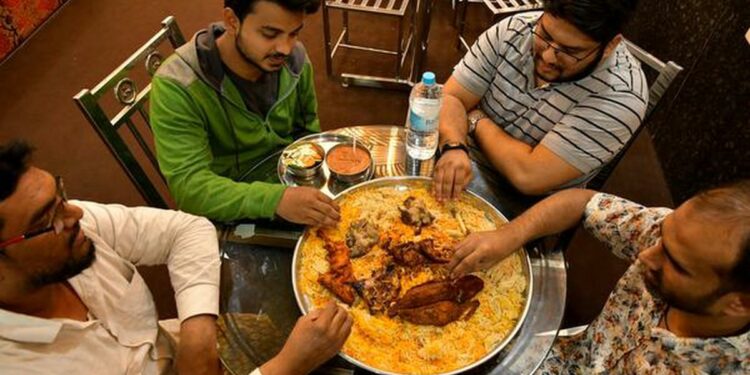It is quite recently Kerala witness a series of changes that would reveal itself its deep significance in the community. It starts from wearing Niqab or veil which was not popular among the Muslim community until a few years ago, to the including of Arab food in the food regimen. While such food is available in most of the cities (especially where the Muslim population is more) it becomes a mandatory choice for an average Keralite despite their ethnic or religious identity.
Recently a popular educational group in Kerala that prohibited Niqab in their institution was isolated by religious fundamentalists asserting that wearing of Niqab is mandatory in Islam. In a video clip available in the media, leader of a Muslim fundamentalist organisation argues that showing off the face of a woman in Islam is similar to that of showing the whole body naked. They argue that women are the “property” of their husbands and hence to hide within the veil.
The most interesting fact is that wearing Niqab was not at all a part of the life of a Muslim woman in Kerala. It is also noted that in those days there was no communal violence but all the religions lived in harmony in the tiny beautiful state. The spread of religious schools or Madrasas, to a great extent, has led to injecting little minds with religious fundamentalism, the philosophy where people belonging to other religions are not qualified for ‘earthly or heavenly’ life.
Coming back to Arab food, the delightful Arab cuisine is popular across the world, where the foodies often loved to taste it during their routine life. However in Kerala, more than having the taste of food from another culture, it has become a symbol of prestige or to show they are ‘original Muslims’. Perhaps this is something like Communists eating Chinese dishes to show their love towards a region where communism developed! It is okay, but the question is why it should become a mandatory choice where even the restaurants are forced to cook in order to satisfy their customers.
The plethora of Arab foods has already occupied the dining tables of the people of Kerala, a vast number of which has been living abroad and a majority in Gulf countries. It’s then no wonder that shawarma, mandi, makboos, falafil, khubuz, hammous, fattoush, tabouleh, kabsa, maqlooba and saffron rice have become an inevitable delicacy for special occasions. Demand for one among those ‘delicacies’ Shawarma had gone down the death of a 21-year-old after having Shawarma and with several such incidents of food poisoning. However, the food is still the favourite in Kerala.
It is nothing but personal choice when the question is about what to eat, how to dress etc. The changed food habits in Kerala have caused a sudden increase in the lifestyle diseases especially among people from the Muslim community. This is evident when we visit hospitals in Muslim majority areas. Local cuisine is the result of hundreds of years of the researches of our ancestors and is aimed at healthy living. Ayurveda insists local food and asserts that it is better to drink water which is available in the locality. Whatever be the religion or community, the aim is just healthy living.
The message that we get from Kerala is dangerous – It is not Arab food, but the blind affiliation towards Arab religion and lifestyle that is conquering Kerala, which is already popular for the presence of Islamic terrorists. These subtle changes could pose a great danger to harmony to cultural Kerala and the very existence of the Hindu community in the state. Sooner or later, if no miracles happen, Kerala could become another Kashmir that would challenge the very integrity of our nation.



















Discussion about this post